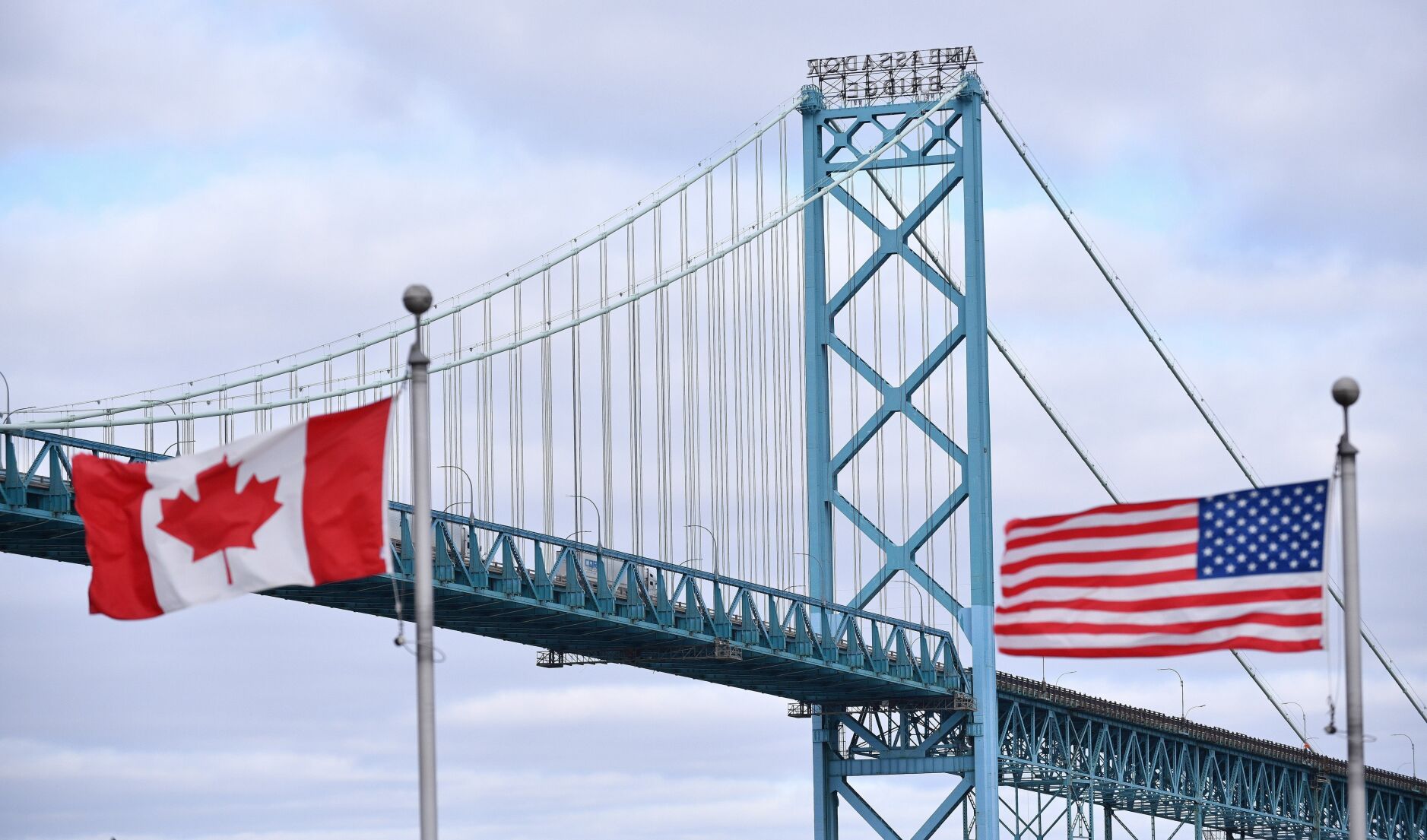What started as a joke — — has slowly evolved into a more insidious idea. Initial remarks from the incoming U.S. president, dismissed by many as bluster, have , the controversial entrepreneur and investor from “Shark Tank,” who now proposes an “economic union” between the United States and Canada.
O’Leary, known for his brash style and bold pitches, has portrayed the idea as a pragmatic solution to geopolitical challenges, but the implications are far more alarming.
Having lived in both Canada and the U.S., I deeply respect both nations. I love the U.S. for its unparalleled opportunities, vibrant economy, and innovation. But the idea of merging Canada with its southern neighbour — economically or otherwise — is a hard no.
Canada is not for sale, and this so-called union would amount to a betrayal of everything that defines us.
Canada and the United States share one of the closest and most integrated relationships in the world. Trade between the two nations totalled $961 billion in 2022, with Canada consistently ranking as the largest export market for U.S. goods and services.
The U.S. has a modest trade deficit of around $100 billion with Canada, driven primarily by energy imports. rightly pointed out that this so-called deficit largely results from the U.S. purchasing Canadian oil and gas at a discount to world prices. “It’s actually Canada that subsidizes the United States in this regard,” Harper said.
Additionally, more than 76 per cent of Canadian exports to the U.S. are used as inputs by American industries. This interdependence underscores the mutual benefits of the relationship and highlights the economic reality that disruptions, like proposed tariffs, would harm both countries.
Trump’s comments about annexing Canada may have started as trolling, but as with many of his statements, the line between jest and intent has blurred. He has doubled down on the idea, threatening 25 per cent tariffs on Canadian goods until Canada stops “illegal migration” and “drug smuggling,” accusations Stephen Harper has dismissed as baseless. Harper noted, “Drugs, guns, crime — most of those things flow north, not south.”
Trump’s rhetoric, including referring to Prime Minister Justin Trudeau as “Gov. Trudeau” and Canada as the “51st state,” does not, as Harper put it, “sound like the pronouncements of somebody who’s a friend, a partner, and an ally.” The president-elect’s rhetoric undermines the long-standing alliance between the two countries.
While I rarely agree with Harper on foreign policy, his critique of Trump’s statements is spot on. Canada’s relationship with the U.S. should hinge on mutual respect, not threats or coercion.
This isn’t the first time the idea of annexation has surfaced. History has consistently shown Canadians rejecting the idea of a merger. A December poll revealed that 82 per cent of Canadians oppose becoming the 51st state, reflecting a strong national pride and commitment to sovereignty.
Canada is defined by its commitments to universal health care, multiculturalism and environmental stewardship. Far from perfect but different in many respects from the U.S. These values contrast sharply with American priorities. Harper emphasized that Canada’s relationship with the U.S. is built on the belief that the United States is a friend, not a conqueror
O’Leary’s pitch for an economic union might seem less threatening than outright annexation, but it’s no less dangerous. Proposals for shared currencies and harmonized policies would require Canada to cede significant control over its economy and institutions.
This vision also ignores the critical role of trade agreements like the United States-Mexico-Canada Agreement (USMCA). These agreements ensure collaboration while respecting national sovereignty. As the USMCA comes up for renegotiation in 2026, both nations have an opportunity to refine their trade relationship without compromising independence.
Canada has faced existential threats before, from internal unity crises like Quebec separatism to external pressures from global powers. Each time, Canadians have stood firm, guided by a sense of shared purpose and identity. Jean Chrétien captured this spirit perfectly: “We may look easygoing, but make no mistake — we have spine and toughness.”
Harper, often described as one of the most pro-American prime ministers in Canadian history, acknowledged that Canada must prioritize its sovereignty. He warned that if the U.S. genuinely threatened Canada’s independence, a different political approach would become necessary: “If the United States actually threatens the sovereignty and independence of Canada, [Conservative Leader Pierre] Poilievre will be forced to take a very different approach to Canada’s place in the world.”
I admire the United States and enjoy the opportunities it offers. But as someone who has lived in both countries, I can say unequivocally: Canada should never sell out its independence, whether through annexation or an economic union.
We are stronger as neighbours, partners, and equals. Let us celebrate what we share while safeguarding what sets us apart.



















To join the conversation set a first and last name in your user profile.
Sign in or register for free to join the Conversation